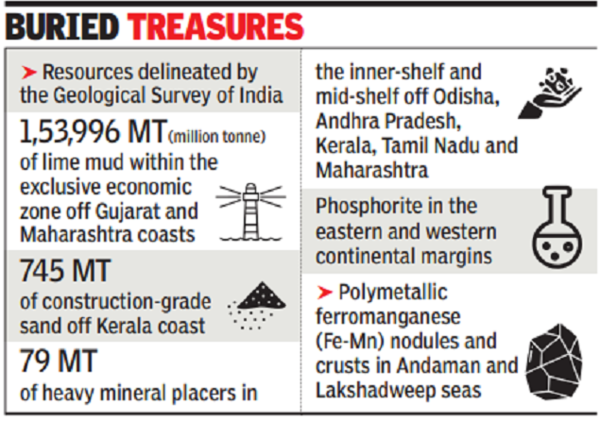[ad_1]
The Bill, steered through Rajya Sabha by coal and mines minister Pralhad Joshi, introduces auction to end scope for discrimination in allocation of offshore mineral exploration and mining rights to companies, including from the private sector.
The transparent auction regime with well-defined norms for concession holders and operators is expected to attract investors and mark the country’s foray into offshore mining in the true sense.
“Offshore mining has remained neglected for long. While our neighbours in the Indian Ocean region have been doing it since long, nothing has happened here due to scope for discretion in the existing law — framed in 2002 and implemented in 2010. The amendment will give confidence to investors by bringing in transparency and fair play,” a top mines ministry official told TOI.

Offshore mining is of strategic importance to India, which has an exclusive economic zone (EEZ) of the size of two million sq km. Firstly, the country needs to harness its maritime resources to fuel a high growth trajectory. Secondly, offshore mining operations — just like oil and gas exploration — strengthens and safeguards territorial claims.
The Bill envisages granting two types of operating rights through auction to the private sector — production lease and composite licence. Composite licence envisages two stages for exploration and starting production.
Operating rights in areas reserved for the central government and exploration & production of atomic minerals will be only for public sector entities.
Provision for renewal of production leases has been scrapped with a 50-year lease period to remove uncertainty for operators. Limits have been introduced on the total offshore area each entity can acquire.
[ad_2]
Source link

